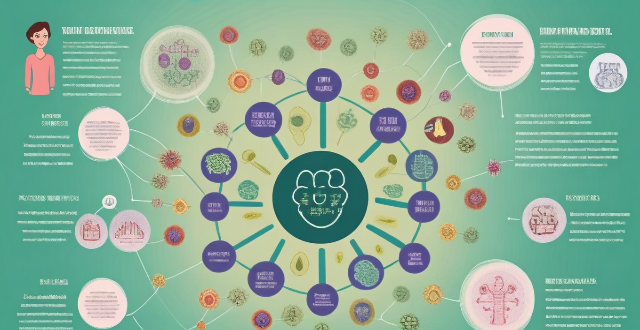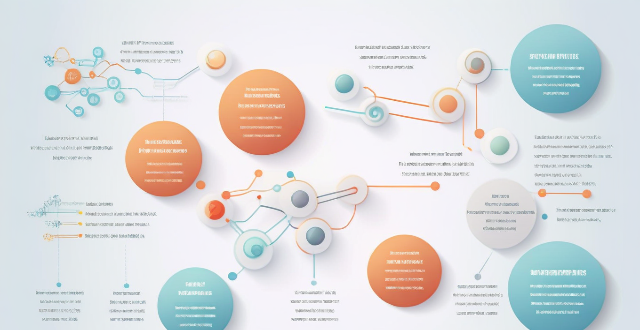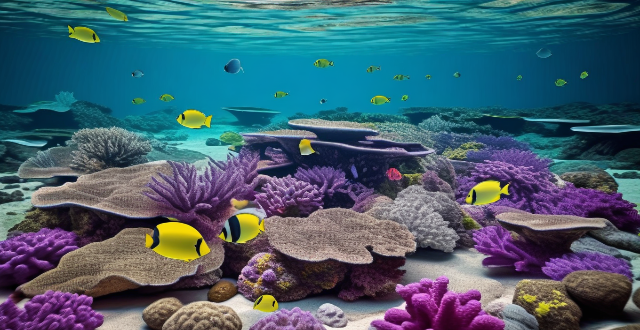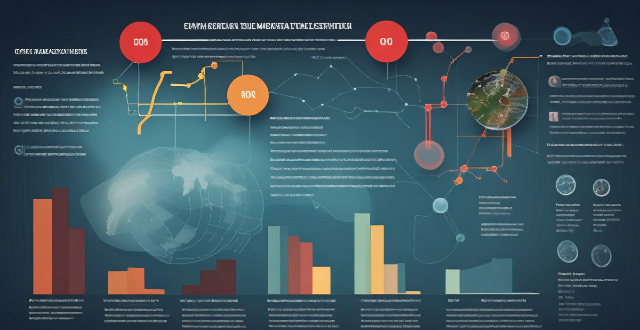Cultural Ethical

What challenges do businesses face when dealing with cultural diversity ?
Businesses operating globally face challenges with cultural diversity impacting communication, decision-making, and productivity. Key challenges include: 1. **Communication Barriers** due to language differences, non-verbal cues, translation issues, and accents/dialects. 2. **Cultural Stereotyping** leading to generalizations, lack of awareness, and assumptions based on cultural backgrounds. 3. **Values and Beliefs Conflicts** arising from work ethic variations, religious practices, and differing attitudes toward gender roles. 4. **Legal and Ethical Considerations** such as navigating employment laws, ethical standards, and data privacy regulations. 5. **Organizational Practices** including management styles, decision-making processes, and feedback mechanisms that vary across cultures. 6. **Adaptation and Change Management** challenges like resistance to change, training needs, and continuous learning requirements. Addressing these challenges requires proactive strategies to ensure all employees feel valued, respected, and can contribute to the organization's success.

What are the ethical considerations in climate adaptation planning ?
This article discusses ethical considerations in climate adaptation planning, including fairness and justice, environmental sustainability, transparency and accountability, intergenerational equity, and cultural sensitivity. It emphasizes the importance of equitable distribution of resources, minimizing negative environmental impacts, involving stakeholders in decision-making processes, considering the needs of future generations, and respecting cultural diversity in adaptation efforts.

What are the ethical considerations of space exploration and colonization ?
The article discusses the ethical considerations of space exploration and colonization, emphasizing the importance of balancing potential benefits with risks, considering environmental impact, addressing interplanetary diplomacy, and developing a comprehensive legal and regulatory framework. It highlights the need for a strong ethical framework to ensure responsible and sustainable pursuit of space endeavors.

What are the ethical considerations when sports are used in international diplomacy ?
Sports have been used as a tool for international diplomacy, but there are ethical considerations to take into account. These include respecting cultural differences, promoting fairness and equity, avoiding political manipulation, and protecting athletes' rights. By doing so, sports can continue to serve as a positive force for building bridges between nations.

What ethical considerations should be taken into account when tracing virus origins ?
Tracing the origins of a virus involves various ethical considerations to ensure protection of individuals, communities, and the environment, while promoting scientific progress. Key considerations include respect for cultural and social sensitivities, protection of privacy and confidentiality, and environmental sustainability. Researchers must avoid stigmatization or discrimination against any group or community, engage with local communities, obtain informed consent, implement robust data security measures, minimize environmental impact, and collaborate with environmental stakeholders. By doing so, researchers can conduct responsible and ethical investigations that contribute to our understanding of viral diseases and inform public health policies.

What are the cultural challenges faced by international students ?
This article discusses the various cultural challenges that international students face when studying abroad, including language barriers, academic differences, social integration, daily life adjustments, and ethical dilemmas. It also provides coping strategies for overcoming these challenges, such as practicing the local language, participating in cultural exchanges, seeking mental health support, proactively communicating with professors and peers, and embracing differences with curiosity and openness. The author emphasizes that while these challenges can be daunting, they also offer valuable opportunities for personal growth and global understanding.

Are there any ethical considerations that need to be addressed before embarking on interstellar exploration ?
The text discusses the ethical considerations for interstellar exploration, including potential risks and benefits, as well as the impact it may have on future generations. The risks include the risk to human life due to harsh conditions in space, resource allocation that could be diverted from addressing pressing issues on Earth, and cultural impact promoting a culture of colonization and exploitation. The benefits include scientific discovery, technological innovation, and collaboration and peace among nations. The impact on future generations involves responsibility to preserve knowledge and ensure sustainability, as well as opportunities for new worlds and a legacy of exploration. It is crucial to carefully weigh these factors and address ethical considerations before proceeding with plans for interstellar travel.

What ethical concerns arise with the development of advanced AI systems ?
The development of advanced artificial intelligence (AI) systems raises numerous ethical concerns, including privacy violations, bias and discrimination, autonomy and control issues, job displacement, and philosophical questions about consciousness and humanity. Addressing these challenges requires establishing legal frameworks, promoting diversity in data sets, maintaining human oversight, investing in workforce retraining, and engaging in cross-disciplinary dialogue to create robust ethical guidelines for AI technology.

Are there any ethical considerations when celebrities invest in certain types of businesses ?
Celebrities must consider ethical implications when investing in businesses, including impact on consumers, environmental concerns, social responsibility, and transparency. Prioritizing ethical investments can promote positive change and set a good example for fans and the public.

What are the ethical implications of genetically modified organisms (GMOs) on the environment ?
The article discusses the ethical implications of genetically modified organisms (GMOs) on the environment, including their potential impact on biodiversity, risk of environmental disasters, and broader economic and social implications. It highlights concerns such as loss of native species due to competition for resources, genetic contamination, and habitat destruction; the potential spread of pests and diseases, ecosystem disruption, and genetic pollution; as well as issues related to monopolies and access to seeds, dependence on corporations, and loss of autonomy for farmers. The conclusion emphasizes the importance of considering these ethical considerations in decisions regarding the development and deployment of GMOs to prevent irreparable harm to ecosystems and communities.

Is it ethical to use genetically modified organisms (GMOs) in agriculture ?
The use of genetically modified organisms (GMOs) in agriculture is a complex and contentious issue that raises ethical questions. Proponents argue that GMOs offer benefits such as increased crop yields, reduced pesticide use, improved nutrient content, and environmental sustainability. Opponents raise concerns about human health risks, economic concentration, environmental impact, and ethical considerations. Key ethical considerations include scientific evidence, public perception, equity and access, environmental stewardship, ethical principles, regulatory oversight, long-term monitoring, global collaboration, innovation and alternatives, and education and awareness.

What are the ethical implications of climate conflicts ?
The ethical implications of climate conflicts, which ariseThe ethical implications of climate conflicts, which arise climate change issues like resource scar which arise from disputes related to climate change issues like resource scarcity and displacement, involve complex moral dilemmas. These conflicts require careful consideration of rights, responsibilities, justice, sustainability, and stewardship. Key ethical principles include balancing individual rights with environmental responsibilities, ensuring justice and fairness in solutions, and promoting sustainability for future generations. Ethical dilemmas such as intergenerational equity, compensation and redress for victims, and balancing mitigation and adaptation strategies must also be addressed. Open dialogue and collaborative problem-solving are essential for finding solutions that promote a more equitable and sustainable future.

How to ensure ethical practices in influencer marketing ?
Influencer marketing has become a popular strategy for brands to reach their target audience. However, it is essential to ensure ethical practices in this form of marketing to maintain trust and credibility with consumers. Here are some tips on how to ensure ethical practices in influencer marketing: 1. Disclose relationships between the brand and the influencer. 2. Choose relevant influencers who align with your brand values and have a genuine interest in your product or service. 3. Set clear guidelines for influencers regarding what they can and cannot do when promoting your brand. 4. Regularly monitor influencer content to identify any issues or concerns early on. 5. Foster transparency and honesty in all aspects of influencer marketing.

What are the ethical responsibilities of governments in mitigating climate change ?
The text discusses the ethical responsibilities of governments in mitigating climate change, which include protecting public health and safety, promoting intergenerational equity, upholding international agreements, ensuring transparency and accountability, and promoting environmental justice. Governments must take proactive measures to reduce greenhouse gas emissions and implement adaptation strategies to minimize risks to public health. They have an obligation to ensure that current generations do not compromise the well-being of future generations by neglecting climate change. Upholding international agreements such as the Paris Agreement is an ethical responsibility of governments, as it demonstrates a commitment to collective action and cooperation in addressing a shared global challenge. Governments must be transparent and accountable in their actions related to climate change, disclosing information about greenhouse gas emissions and engaging with civil society organizations and the public on climate change issues. Environmental justice refers to the fair treatment of people regardless of race, ethnicity, income, or geographical location, with respect to environmental hazards and benefits. Governments have an ethical responsibility to address disparities in exposure to environmental harms caused by climate change.

What are the ethical considerations for insurers when it comes to climate change ?
The insurance industry faces significant ethical challenges due to climate change, including understanding and communicating risks, pricing and availability of insurance, responsibility and accountability, and collaboration and leadership. Ethical considerations such as transparency, fair pricing, accessibility, mitigating impact, adaptation and resilience, partnerships, and advocacy for regulations are crucial in managing these challenges. Insurers play a vital role in contributing positively to societal efforts in mitigating and adapting to climate change by focusing on these ethical aspects.

How do ethical considerations factor into the use of AI in sports ?
Ethical considerations in the use of AI in sports include fairness and bias, privacy and data protection, integrity and cheating, transparency and accountability, human oversight and control, and future implications. It is important to ensure that AI algorithms are free from inherent biases, strict data protection regulations are enforced, clear guidelines are established to prevent misuse of AI technology, transparency and explainability are essential for building trust in AI applications within sports, clear lines of accountability must be established for actions taken by AI systems, human judgment should always play a role in decisions influenced by AI in sports, and thoughtful planning is required to mitigate potential negative consequences of AI on the sports industry.

What are the ethical considerations in ecological design ?
Ecological design in architecture and urban planning aims to minimize environmental impacts, emphasizing sustainability, equity, cultural sensitivity, health, and long-term responsibility. Key practices include using renewable resources, ensuring accessibility for all, respecting local traditions, prioritizing health through non-toxic materials and natural environments, and planning for future adaptability and deconstruction. Addressing these ethical considerations is crucial for creating resilient, equitable communities that benefit both people and the planet.

What challenges do people face when participating in cultural exchanges ?
Cultural exchanges, while enriching, present challenges like language barriers, cultural differences, adjustment difficulties, stereotyping, legal and practical issues, and emotional strain. To overcome these, participants should be open-minded, patient, and willing to learn, with preparation through training, classes, and mentorship.

What are the benefits of embarking on a cultural exploration journey ?
Embarking on a cultural exploration journey is an enriching experience that offers numerous benefits, including expanding your horizons, enhancing communication skills, boosting creativity, developing cultural sensitivity, strengthening adaptability, building global awareness, forging lasting connections, and promoting personal growth and self-discovery.

How can we promote cultural diversity in our community ?
Promoting cultural diversity is crucial for fostering understanding and respect among people from different backgrounds. To achieve this, we can organize cultural events, promote multicultural education, encourage intercultural dialogue, support local businesses owned by diverse individuals, increase diverse representation in media, and promote cultural exchange programs. By embracing these strategies, we can create an inclusive and harmonious society where everyone feels valued and respected.

How can cultural fusion be promoted within multicultural communities ?
Promoting Cultural Fusion in Multicultural Communities emphasizes the importance of understanding and valuing diversity, fostering dialogue and exchange, promoting inclusion and equity, supporting cultural preservation and innovation, implementing policies and practices, and building partnerships and collaborations. These strategies aim to create a community where diverse cultures are celebrated and respected, leading to a richer and more innovative community life.

Can cultural fusion lead to a loss of cultural identity ?
Cultural fusion, the blending of different cultures, has been a phenomenon for centuries. However, with globalization and the rise of social media, cultural fusion has become more prevalent than ever before. While it can lead to the creation of new and exciting cultural expressions, it can also raise concerns about the potential loss of cultural identity. This article explores whether cultural fusion can indeed lead to a loss of cultural identity by examining the benefits of cultural fusion, the potential loss of cultural identity, and ways to maintain cultural identity amidst fusion.

How do food festivals promote cultural diversity and understanding ?
Food festivals are significant events that promote cultural diversity and understanding by offering educational opportunities, exposing attendees to new flavors, building community, impacting the economy positively, providing entertainment, enhancing social media presence and awareness, and promoting sustainability initiatives. These festivals facilitate cross-cultural dialogue, break down cultural barriers, and encourage a shared appreciation for global cuisine.

How does cultural diversity affect international cooperation ?
Cultural diversity significantly impacts international cooperation by influencing communication, ethical perspectives, decision-making approaches, business practices, legal and governmental systems, and social norms. Understanding these differences is crucial for fostering successful global partnerships.

Which Asian countries should I visit for a cultural experience ?
Asian countries offer a diverse range of cultural experiences, including festivals, traditional practices, and historic landmarks. Recommended destinations include Japan's Kyoto and Tokyo, China's Beijing and Shanghai, India's Delhi and Agra, Thailand's Bangkok and Chiang Mai, Vietnam's Hanoi and Ho Chi Minh City, and South Korea's Seoul and Busan. Each country offers unique cuisine and activities for travelers seeking a rich cultural experience.

What are some examples of environmental ethical dilemmas ?
Environmental ethical dilemmas encompass a range of issues where choices must balance environmental needs with other interests. These dilemmas include overconsumption and waste, climate change mitigation, wildlife conservation, natural resource management, and genetic engineering. Addressing these challenges involves considering scientific data, ethics, stakeholder perspectives, and potential long-term impacts to make decisions that prioritize both human well-being and the health of the planet.

Can you recommend luxury resorts that offer unique cultural experiences ?
This article recommends several luxury resorts worldwide that offer unique cultural experiences. The Four Seasons Resort Bali at Sayan, Amangiri, Capella Ubud, The Brando, Como Shambhala Estate, Hacienda de San Antonio, and Mandapa, Ritz-Carlton Reserve are among the featured resorts. Each provides a blend of luxurious accommodations and immersive cultural activities such as dance classes, guided hikes, spiritual journeys, cooking classes, and more. These resorts are located in diverse settings, including jungles, deserts, mountains, and coastal areas, offering opportunities to explore local traditions, cuisine, history, and natural beauty.

Is there a risk that cultural fusion could result in cultural homogenization ?
The text discusses the risk of cultural homogenization that comes with cultural fusion, which is the blending of different cultures. This process leads to the loss of distinctive features of individual cultures as they become increasingly similar due to globalization, migration, and other forms of cultural interaction. The phenomenon of cultural homogenization is characterized by the loss of heritage, dominance of global culture, and erosion of local practices. Several factors contribute to this, including globalization, mass media, migration, and economic influence. To mitigate the risk, it is essential to promote cultural preservation and exchange while discouraging the domination of any single culture. This can be achieved through supporting local cultures, cultural exchange programs, education, and policy measures.

What is the impact of cultural exchange on globalization ?
This essay explores the impact of cultural exchange on globalization. It states that cultural exchange plays a crucial role in enhancing mutual understanding and respect among nations, promoting economic growth and development, fostering international collaboration and cooperation, encouraging tourism and travel, and preserving cultural heritage and traditions. The essay concludes that as our world becomes increasingly interconnected, cultural exchange will continue to play a vital role in shaping our future together.

What are the benefits and drawbacks of cultural fusion in education systems ?
Cultural fusion in education systems can enhance global awareness and improve intercultural communication, but it may also lead to a loss of cultural identity and stereotyping. To maximize its benefits, cultural fusion should be implemented thoughtfully and effectively.